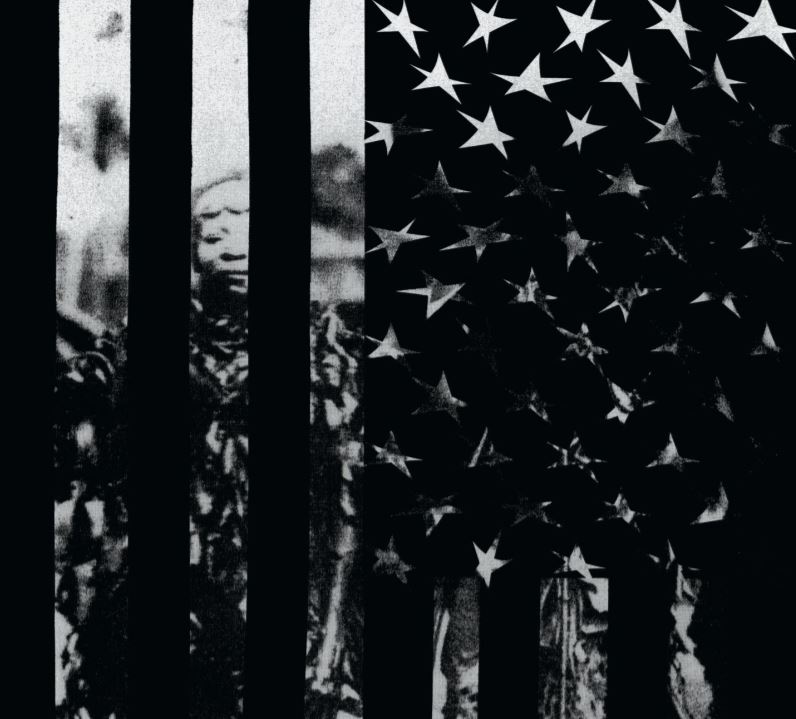On Thursday, February 11, 2021, 260 educators joined the Pulitzer Center education team for a Zoom webinar with educators and administrators from five cities who have been implementing curricular material from The 1619 Project in their classrooms and school districts. The discussion was led by Nikita Stewart, contributor to The 1619 Project and Assistant Editor for the Metro Section at The New York Times, and the Pulitzer Center education team.
Moderated by Stewart, the webinar featured a panel discussion between teachers and school leaders across the country who have shared materials from The 1619 Project with the students and teachers they support. These educators have woven the principals of The 1619 Project, a reframing and re-centering of American history that hones in on the experiences of Black Americans and contributions of Black Americans to the country’s culture and commerce, in distinct ways.
The panel was made up of a diverse group of classroom teachers and school administrators in districts across the country. The panelists were:
-
Scott Abbott, Director of Social Studies for DC Public Schools
-
Rebecca Coven, English and social studies educator at Sullivan High School in Chicago, IL
-
Jason Hall, acting director for the Office of Culturally and Linguistically Responsive Initiatives at Buffalo Public Schools
-
Marissa Long: 8th grade social studies educator at Beverly Vista Middle School in Beverly Hills, CA
-
Christina Sneed: ELA/Social Studies Curriculum and Instruction Lead at University City High School in St. Louis, MO
Presentations from the panelists ranged from discussions on curricular reform in Washington, DC and Buffalo, NY to multimedia projects with high school students in Chicago, to frank and open conversations about race with middle school students in Los Angeles, and to advocacy projects from high school students in University City, MO. Each panelist had their own connection to The 1619 Project and its materials.
Scott Abbot, Director of Social Studies for DC Public Schools, used his presentation to explore the district-wide influence The 1619 Project had in Washington, DC. He noted that content from the project directly supported content for 8th, 9th, and 10th grade social studies and history classes. He also noted that his district was “really excited when The 1619 Project came out, because we were already looking at our curriculum from the lens of social justice.” In DC Social Studies classrooms, this work could look like “representing diverse perspectives, questioning dominant narratives, and de-centering whiteness,” all central tenants of the vision of The 1619 Project.
Christina Sneed, an English Language Arts and Social Studies Curriculum and Instruction lead at University City High School in Missouri, explained that she began her classroom implementation of The 1619 Project 's materials by asking her students three questions: who writes history? How do we determine what is “true”? And what is the relationship between truth and reconciliation?
Sneed explained how her use of The 1619 Project directly related to curricular requirements for teachers in her district. She spoke about the ways that she allowed her students to guide the way that her class used The 1619 Project materials in ways that felt meaningful to their own lived experiences. Sneed finished her presentation by noting that the next year would see her school district bringing The 1619 Project materials district-wide.
After the panel discussion, there was a brief Q&A, moderated by Stewart. Topics covered included navigating pushback from parents, fellow educators, and politicians when teaching The 1619 Project, instructional techniques to level essays from the project for different reading levels, and how to teach project materials to students of all races. Drawing from their own experiences and a seemingly boundless trove of resources, the panelists answered questions enthusiastically. Words of encouragement and offers of encouragement were plentiful and brought the webinar to a close.
In the post-event survey, the webinar attendees shared ways that they were planning to implement the content and strategies covered by the panel in their own classrooms. One educator from Washington, DC wrote, "I will be better able to make The 1619 Project accessible for 4th graders by integrating the photos, poetry and podcast [into my class]. I'm absolutely going to dig into Teaching Hard History, Tampering with History, and the DCPS Social Studies standards." Another educator wrote of their plans to "weave some of the ideas and thought-provoking critical questions and materials into our existing scope and sequence." A majority of the educators wrote of their plans to share resources from The 1619 Project with colleagues, students, and existing curricula.
When asked to describe what they most enjoyed from the event, one attendee noted, "it was eye-opening to hear from classroom teachers who had first-hand experiences with their students. Wow. Mad respect for doing the right thing."
Another stated, "I dearly admire the dedication and courage demonstrated by the educators. In the face of harsh criticism they held true to their belief that students deserve quality educational experiences."
For all curricular resources connected to The 1619 Project, visit www.pulitzercenter.org/1619. To view upcoming events connected to the project, visit our announcement page for The 1619 Project or subscribe to the Pulitzer Center Education Newsletter.
The Pulitzer Center invites educators to view the webinar at their convenience, and to consider ways that they can implement curricular materials from The 1619 Project in their classrooms and with their students. Please contact [email protected] if you have any questions or would like to connect with us to discuss more ways to become involved with The 1619 Project Education Network.
Are you interested in applying to be a part of The 1619 Project Education Network? Applications close on March 15th, 2021. Click here to apply!



